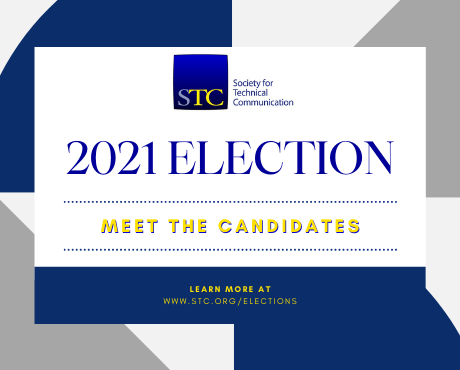This entry is being posted on behalf of Miles Kimball, candidate for Vice President in the 2021 STC election.

My life in tech comm has been marked by a single big idea: that tech comm is itself a big idea, more expansive than many of us recognize. As a practitioner, teacher, and scholar, I take as my goal to widen the profile of technical communication to include the ways that all people articulate technical information and practices to improve their lives and those of others. And by “all people,” I really mean mean all. Depending on the state they live in, a student might be asked to write a ream of banal 5-paragraph essays about intractable problems like inequity and injustice, problems the best thinkers in the world can’t solve by writing an essay for The Atlantic. We need something more. And one good way to get that recognition is by continuing to promote the value of membership in STC to advanced students.
Around 13 million Americans began studying at a college or university this year (nces.ed.gov). Most educators and parents would agree that the vast majority of students have never received instruction in how to write essential tech comm genres: reports, procedures, instructions, and proposals, while they have many opportunities to practice the essay genre – which most of them will never write again after leaving school. Think what might happen if we were to encourage 0.1% of those 13 million students to take a course in tech comm. We spend too much time teaching students how to write a relatively esoteric genre (the essay) and too little time teaching them how to write documents that make things happen in the world (proposals, instructions, reports, etc., – some of the many genres that we typically call “technical communication.”
I believe that our profession, our association, and our society would be dramatically improved if we reached out to educators and students even more so than we have already.
“How can we do this?” you might ask. I don’t mean to distract us from the Society’s primary role, serving its members and the profession is represents. Bu we can do some positive and relatively straightforward things to foster awareness of technical communication programs on college campuses.
Here are a few ideas – not promises or even proposals, but more like possible paths to a common end: growing the profession, the discipline, and the practice of technical communication. As someone well-experienced in all three, I hope I can bring representatives of each to maybe I can help create opportunities to benefit all stakeholders.
Academic Actions
- Create team assignments with the potential for actual impact on communities. For example, several years ago my students redesign a community’s water quality report, which eventually went out to 70,000 households.
- Reach out to the composition faculty. They are already moving in the right direction with multimodal writing.
- Explore the possibility of proposing to allow students to take a basic tech writing course rather than freshman composition.
- Work with STC members to create new curricula for students at various levels.
Society Actions
- Continue to build the certification system
- Consider marketing the CPTC certification as part of academic program assessment, in which all students take the certification test in order to assess the program they were taught in.
- Partner with CPTSC and ATTW to provide an accrediting agency for tech comm programs, along the lines of ABET for engineering or ACEJMC for Journalism.
I’m excited at the opportunity to talk with you about these and other ideas.

